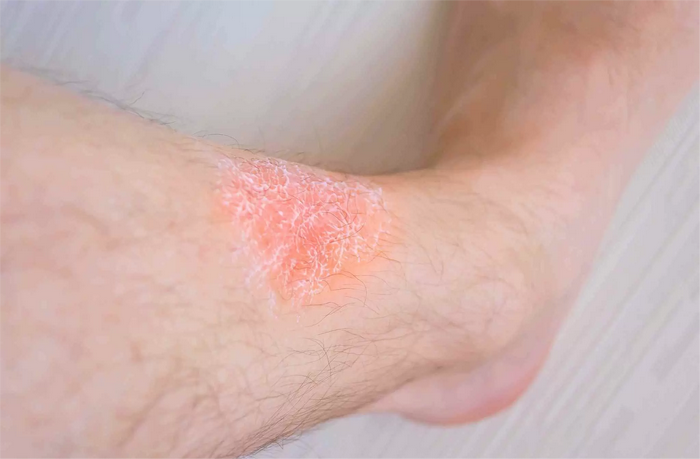Eczema, or atopic dermatitis, is a chronic skin condition characterized by inflamed, itchy, and sometimes oozing patches of skin. This condition affects millions of people worldwide, causing discomfort and a significant impact on quality of life. While the exact cause of eczema is not fully understood, it is known to be a complex interplay of genetic, environmental, and immune system factors. Among these, diet plays a crucial role, with certain foods acting as triggers for flare-ups. In this article, we will explore ten common trigger foods for eczema and delve into the science behind why they can exacerbate this skin condition.
1. Dairy Products
Dairy products are among the most common triggers for eczema. Milk, cheese, yogurt, and other dairy products contain proteins such as casein and whey, which can provoke an immune response in susceptible individuals. Studies have shown that a significant number of children with eczema have a sensitivity to cow’s milk. The immune system’s reaction to these proteins can lead to inflammation and the characteristic symptoms of eczema.
Mechanism of Action
The proteins in dairy can cause an allergic reaction or intolerance in some individuals. This reaction triggers the release of inflammatory mediators like histamines, which can exacerbate eczema symptoms. Additionally, dairy products can increase mucus production, which may contribute to skin inflammation indirectly.
2. Eggs
Eggs are another common allergen that can trigger eczema flare-ups. The proteins in egg whites, particularly ovalbumin, are often the culprits. Many children with eczema are found to be allergic to eggs, and eliminating eggs from their diet can lead to significant improvement in symptoms.
Mechanism of Action
When someone with an egg allergy consumes eggs, their immune system mistakenly identifies the proteins as harmful and releases antibodies to attack them. This immune response releases chemicals that cause inflammation, leading to eczema flare-ups.
3. Gluten
Gluten, a protein found in wheat, barley, and rye, can be a trigger for eczema in some individuals. While gluten intolerance and celiac disease are well-known conditions, even non-celiac gluten sensitivity can lead to skin issues, including eczema.
Mechanism of Action
For those sensitive to gluten, consumption can lead to an immune response that causes inflammation throughout the body, including the skin. This systemic inflammation can exacerbate eczema symptoms. Additionally, gluten sensitivity can affect gut health, leading to increased intestinal permeability, which is associated with various inflammatory conditions, including eczema.
4. Soy
Soy and soy-based products, such as tofu, soy milk, and soy sauce, can trigger eczema in some people. Soy contains several proteins that can cause allergic reactions, particularly in children.
Mechanism of Action
Similar to other food allergens, the immune system of an individual with a soy allergy reacts to soy proteins as if they were harmful invaders. This reaction releases inflammatory chemicals that can worsen eczema symptoms. Additionally, soy can disrupt hormonal balance in some individuals, potentially affecting skin health.
5. Nuts
Tree nuts (such as almonds, walnuts, and cashews) and peanuts are well-known allergens that can trigger severe allergic reactions, including eczema flare-ups. Nut allergies are prevalent and can cause immediate or delayed eczema reactions.
Mechanism of Action
When someone with a nut allergy consumes nuts, their immune system releases antibodies that trigger the release of histamines and other inflammatory substances. This inflammation can cause the skin to become red, itchy, and swollen, characteristic of eczema flare-ups.
6. Citrus Fruits
Citrus fruits, including oranges, lemons, limes, and grapefruits, are known to cause allergic reactions and can trigger eczema in some individuals. The high acidity and presence of certain proteins in these fruits can irritate the skin.
Mechanism of Action
The acidity of citrus fruits can directly irritate the skin, especially in individuals with sensitive skin or active eczema. Additionally, certain proteins in citrus fruits can cause an allergic reaction, leading to the release of histamines and other inflammatory chemicals that exacerbate eczema symptoms.
7. Tomatoes
Tomatoes and tomato-based products, such as ketchup, sauces, and soups, can trigger eczema in some people. Tomatoes contain several compounds, including histamines, that can provoke an immune response.
SEE ALSO: How Often Should You Bathe with Eczema?
Mechanism of Action
Tomatoes are naturally high in histamines, which can directly trigger inflammation in individuals with histamine intolerance. Additionally, tomatoes contain salicylates and other compounds that can cause allergic reactions or skin irritation in susceptible individuals, leading to eczema flare-ups.
8. Shellfish
Shellfish, including shrimp, crab, and lobster, are common allergens that can trigger eczema. Shellfish allergies can be severe and are often lifelong.
Mechanism of Action
Shellfish contain proteins that can trigger an allergic reaction, leading to the release of inflammatory mediators. These mediators cause the typical symptoms of an allergic reaction, including skin inflammation and eczema flare-ups.
9. Spices
Certain spices, such as cinnamon, cloves, and vanilla, can trigger eczema in sensitive individuals. These spices contain compounds that can cause allergic reactions or skin irritation.
Mechanism of Action
Spices can cause direct skin irritation or allergic reactions. For example, cinnamaldehyde, a compound found in cinnamon, can cause allergic contact dermatitis in some individuals. This reaction leads to inflammation and exacerbation of eczema symptoms.
10. Processed Foods
Processed foods, including fast food, packaged snacks, and ready-made meals, often contain additives, preservatives, and artificial ingredients that can trigger eczema. These foods are also typically high in sugar and unhealthy fats, which can contribute to inflammation.
Mechanism of Action
Processed foods can contain various chemicals and additives that may trigger allergic reactions or skin irritation. Additionally, the high sugar content can lead to increased insulin levels and systemic inflammation, both of which can worsen eczema symptoms. Unhealthy fats found in processed foods can disrupt the balance of fatty acids in the skin, impairing its barrier function and making it more susceptible to eczema.
Managing Eczema Through Diet
Identifying and eliminating trigger foods can significantly improve eczema symptoms for many individuals. Here are some strategies to help manage eczema through diet:
- Elimination Diet: An elimination diet involves removing suspected trigger foods from your diet for a period, then gradually reintroducing them one at a time to identify which foods cause flare-ups.
- Allergy Testing: Allergy testing, such as skin prick tests or blood tests, can help identify specific food allergies that may be triggering eczema.
- Anti-Inflammatory Diet: Adopting an anti-inflammatory diet rich in fruits, vegetables, whole grains, and healthy fats can help reduce systemic inflammation and improve skin health.
- Probiotics and Prebiotics: Consuming probiotics and prebiotics can support gut health, which is closely linked to immune function and skin health.
- Hydration: Staying well-hydrated is essential for maintaining healthy skin. Drink plenty of water and include hydrating foods in your diet.
- Omega-3 Fatty Acids: Omega-3 fatty acids, found in fish, flaxseeds, and walnuts, have anti-inflammatory properties that can help manage eczema.
- Consultation with a Dietitian: Working with a dietitian can help you develop a personalized eating plan that avoids triggers and supports overall skin health.
Conclusion
Eczema is a complex condition with a variety of triggers, including certain foods. By identifying and avoiding these trigger foods, individuals with eczema can significantly reduce the frequency and severity of flare-ups. While it may require some trial and error to determine specific dietary triggers, the effort can lead to better management of eczema and an improved quality of life. Always consult with a healthcare provider or a registered dietitian before making significant changes to your diet, especially if you have known food allergies or other medical conditions.
Related Topics:


























